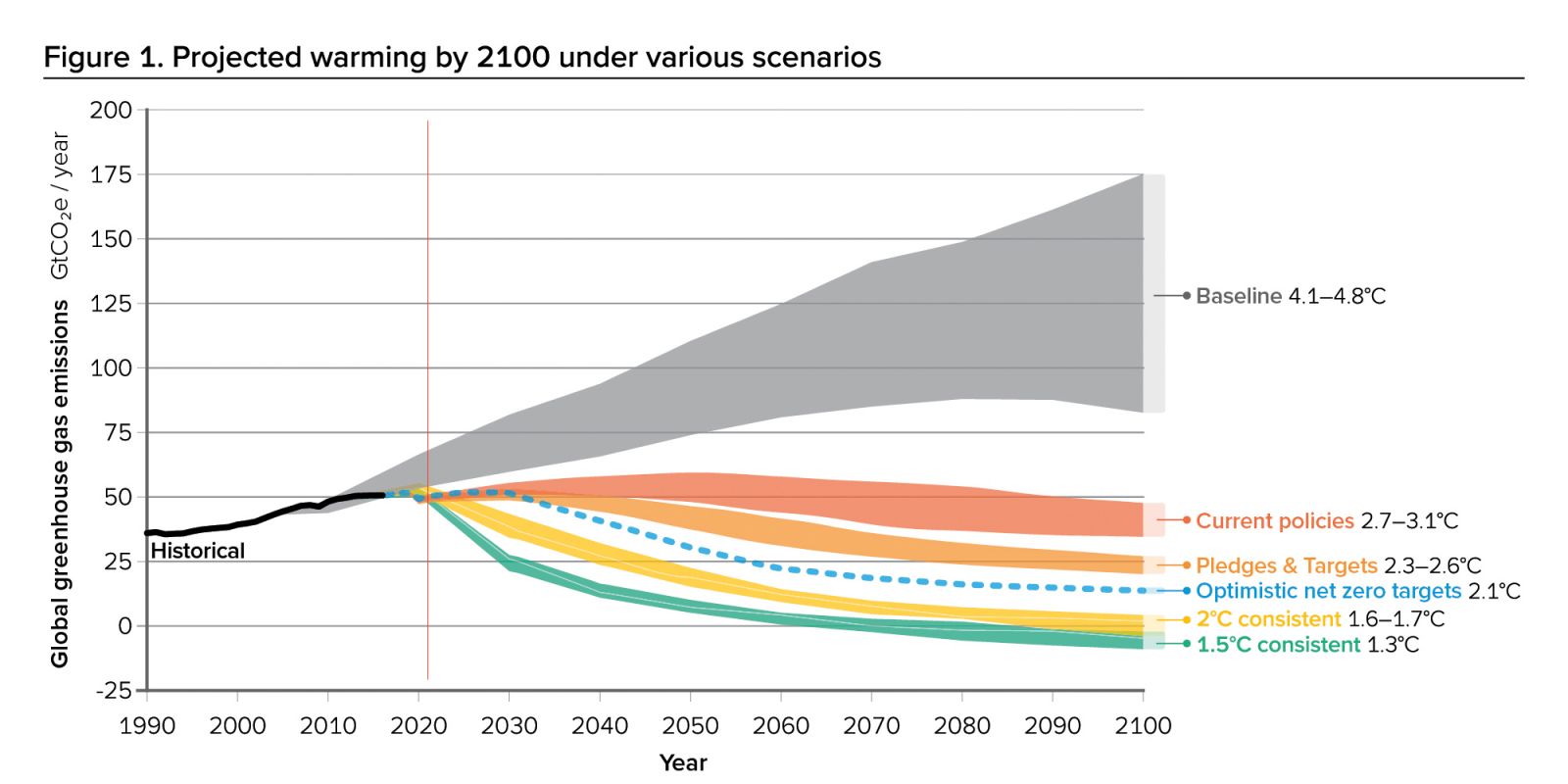The Australian Academy of Science is calling on the Australian Government to accelerate Australia’s transition to net zero greenhouse gas (GHG) emissions over the next 10 to 20 years to play our part in avoiding the worst impacts of climate change.
The key recommendation is included in a landmark Academy report published today.
The report, which explores the risks to Australia’s future based on the current global trajectory of greenhouse gas emissions, states that the world reaching net zero emissions by 2050 is an absolute minimum, if Australia is to avoid potentially insurmountable challenges to its cities, ecosystems, industries and food and health systems.
The report says Australia is well positioned to play its part in meeting this challenge, with a skilled workforce, strong industrial base and plentiful renewable energy resources facilitating easier emission reductions compared to many other countries.
It highlights that even if the world’s governments meet their current Paris pledges on time, Earth is likely to reach average global surface temperatures of 3oC above the pre-industrial period during this century, with catastrophic consequences.

Further pledges to achieve net zero emissions by 2050 are required for the world to stay well below 2oC of warming, the goal agreed to under the Paris Agreement.
To achieve net zero, the report says Australia will need to rapidly remove greenhouse gas emissions from a range of sectors including electricity generation and distribution; electrify the transport sector, industry and buildings; increase energy efficiency across the board; and reduce non-energy related GHG emissions from all sectors including industrial processes and agriculture.
President of the Australian Academy of Science, Professor John Shine, welcomed the report.
“The Australian Academy of Science is proud to have played an active role in assessing the science of climate change since the 1970s. This new report makes clear that while the planet is well on the path to harmful climate change, as with COVID-19, science has solutions,” Professor Shine said.
“Australia is well positioned to meet the climate change challenge by combining our scientific knowledge with economic opportunities associated with moves to net zero greenhouse gas emissions.
Australia is well positioned to meet the climate change challenge by combining our scientific knowledge with economic opportunities associated with moves to net zero greenhouse gas emissions.
“We urge the Australian Government to implement the recommendations of this report. The Academy stands ready to assist by providing sound scientific advice on climate change to inform the Government’s multifaceted policy response.”

Academy Fellow Professor Ove Hoegh-Guldberg is the chair of the expert panel that developed the report. He said limiting climate change to 1.5°C is now virtually impossible and that a rapid transition to net zero greenhouse gas emissions is required if the international community is to limit warming to well below 2°C.
“Current international commitments to greenhouse gas emission reduction, if unchanged, would result in average global surface temperatures that are 3°C above the pre-industrial period in the lifetimes of our children and grandchildren,” said Professor Hoegh-Guldberg, from the University of Queensland.
“The evidence presented in this risk-assessment report, which is based on peer-reviewed scientific literature, indicates that this would have serious consequences for Australia and the world.
The evidence presented in this risk-assessment report, which is based on peer-reviewed scientific literature, indicates that this would have serious consequences for Australia and the world.
“Australia must revisit its emission reduction commitments and work with other countries to provide the leadership and collaboration required to place Australia and the world on a safer climate trajectory.
“Australia has a stable business landscape. We have a great scientific tradition. We have enormous resources for the next wave of innovative technologies. We not only have a responsibility to be an international leader on climate action but need to grasp the enormous economic opportunities presented by the ‘new’ economy,” said Professor Hoegh-Guldberg.
The report says Australia can become a clean energy exporter and potentially a global renewable energy superpower. It highlights Australia’s relative advantage with its abundant natural resources for solar and other renewable energy generation, as well as significant deposits of new economy minerals critical for developing batteries and other low emission technologies.
The report focuses on the consequences of 3°C of global warming for four areas of importance to Australia’s future: ecosystems; food production; cities and towns; and health and wellbeing. It also focuses on Australia’s contribution to what must be done to stay well below 2°C and thus limit these impacts.
The impacts of climatic changes on the lives and wellbeing of Australians are also discussed in detail in the report.

The report makes a total of 10 recommendations (see page 13). They include to:
Expert panel member Distinguished Professor Lesley Hughes, focusing on ecosystems, said most Australian species cannot evolve quickly enough to cope with the rapid increases in temperatures and associated increases in the frequency and severity of extreme weather events we now observe and feel.
“The unprecedented bushfire season in 2019–20 and the mass dying of corals on the Great Barrier Reef demonstrate how rapidly and fundamentally our global environment is changing with only 1.1°C of global warming,” said Professor Hughes, who is Pro Vice-Chancellor (Research) at Macquarie University.
“It’s not too late to avoid 3°C. We should still be aiming for a stable global temperature below 2°C but to get to that point, we must reduce emissions very rapidly—in particular accelerating the energy transition in the next decade. This must be one of the most urgent national and international priorities.”
It’s not too late to avoid 3°C. We should still be aiming for a stable global temperature below 2°C but to get to that point, we must reduce emissions very rapidly—in particular accelerating the energy transition in the next decade. This must be one of the most urgent national and international priorities.
© 2025 Australian Academy of Science